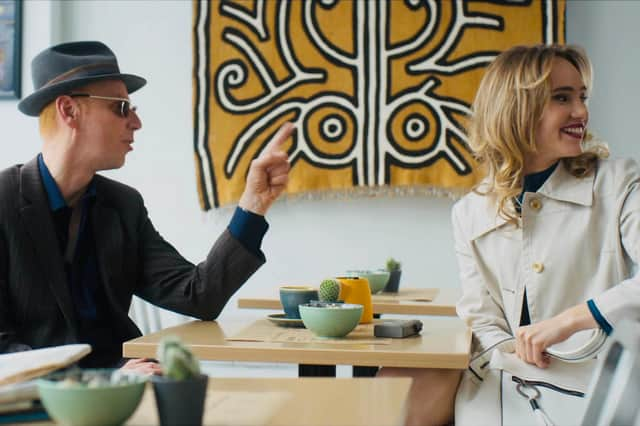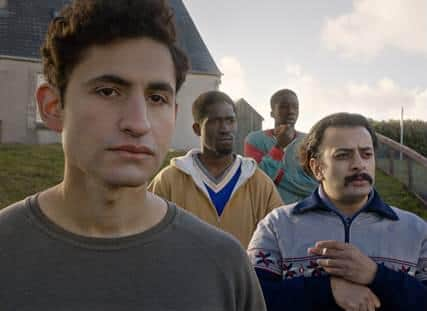Analysis: Why Scotland talent is a standout at digital Glasgow Film Festival


Having scraped through last year by the the skin of its teeth – the 2020 festival ended ten days before cinemas shuttered) – this year’s festival was all set to launch an ambitious hybrid event incorporating online and UK-wide socially-distanced physical screenings until the recently intensified Covid restrictions forced organisers to change it to an exclusively online event.
While a blow for a festival that has always thrived by bringing people together to celebrate film in a convivial atmosphere, in a digital environment where it’s easy to become paralysed by choice, a properly curated offering of brand new cinema offers a welcome respite from the sometimes overwhelming algorithmic randomness of streaming services.
Advertisement
Hide Ad

Among this year’s highlights, Creation Stories looks set to be the big talking point film.
Co-written by Irvine Welsh, it’s a biopic of Creation Records supremo Alan McGee and stars Ewen Bremner as the fiercely independent Glaswegian music industry upstart who discovered the Jesus and Mary Chain, Primal Scream and then properly hit the big time after signing Oasis.
The festival will also host the UK premiere of The Last King of Scotland director Kevin Macdonald’s The Mauritanian, a true-life Guantanamo Bay legal drama starring Jodie Foster and Benedict Cumberbatch.
And sticking with Scottish-led talent there’s Limbo, Ben Sharrock’s wonderful comedy/drama about Syrian asylum seekers awaiting their fates on Uist.
Documentary maker Anthony Baxter (You’ve Been Trumped) also returns, shifting his gaze away from Donald Trump with Eye of the Storm, a film about the late Scottish painter James Morrison.
But GFF has always been international in scope and, in addition to opening with acclaimed Korean-American family drama Minari, there’s a timely post-Parasite country focus on South Korea.
Advertisement
Hide AdThere are also new films from established world cinema auteurs such as Anders Thomas Jensen (the Mads Mikkelsen-starring Riders of Justice) and Frederick Wiseman (City Hall), as well as potential breakthroughs from newer filmmakers such as Lawrence Michael Levine (whose Aubrey Plaza-starring Black Bear looks wild), and first-time Greek director Christos Nikou, who got his start working for Dogtooth director Yorgos Lanthimos, and whose debut feature, Apples, couldn’t be timelier – it’s about a pandemic.
Comments
Want to join the conversation? Please or to comment on this article.
